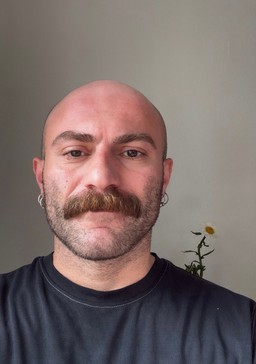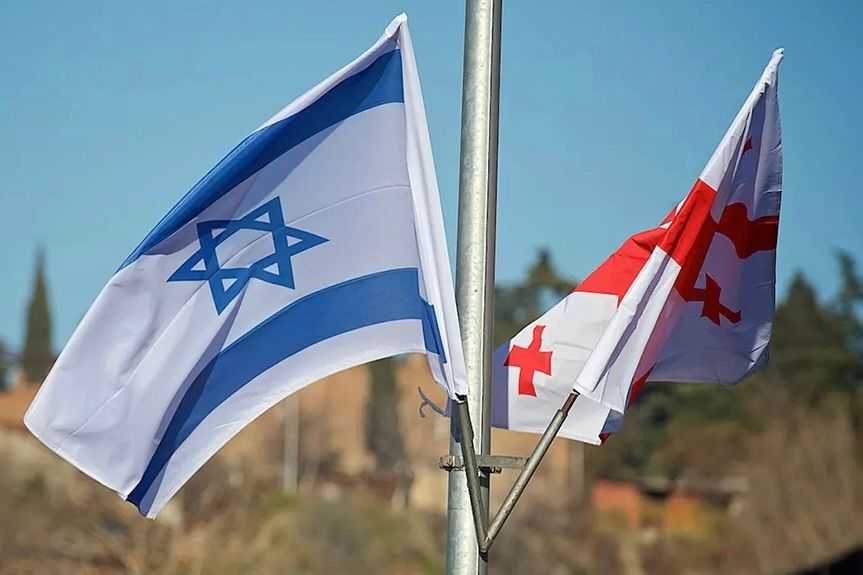Opinion | Georgia’s self-avowed liberals undermine themselves by justifying Israeli war crimes
To support Israel unconditionally is to betray Georgia’s history, and to normalise the logic of occupation, including our own.
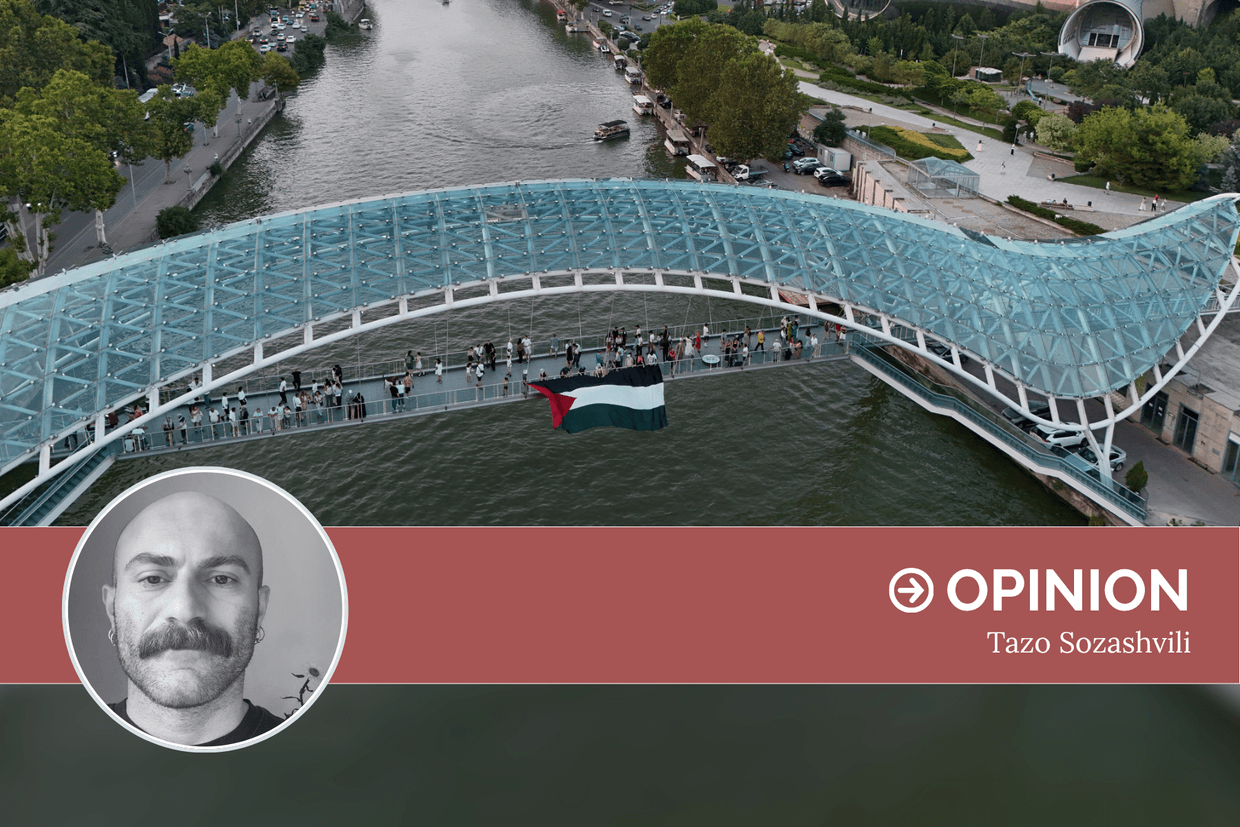
Before the recent ‘ceasefire’, Israel killed around 28 children in Gaza each day. The ignorance, justification, and impunity surrounding this genocide is not just terrifying — it is a direct betrayal of both the international rules-based order and of humanity itself. Most troubling is the erosion of empathy, critical thinking, and the most basic habits of fact-checking within Georgia’s political class, journalists, and civic activists, exposing a dangerous selectivity in upholding universal values.
I have struggled to comprehend this contradiction: how a nation that demands international solidarity for its own territorial integrity in the face of Russian occupation can so casually align itself with another occupying power, Israel, which commits actions that echo those Georgia itself has suffered. This sharp dissonance reveals how we interpret justice, power, and national identity in modern Georgia.
Georgia recognised both the state of Palestine and the state of Israel in 1992. While different Georgian governments have dealt with the situation with slightly different approaches, Tbilisi has always pursued a ‘balanced policy’ based on a two-state solution: on the one hand, aligning with the US, its strategic partner, while on the other hand, keeping friendly diplomatic relations with Muslim-majority countries in the region.
While this is not surprising at all, the active support for Israel’s war crimes or silence about them among Georgian society has caused me much disappointment, pain, and anger. This is particularly the case among those I once considered strong allies in fighting for justice and human rights.
Their empathy is highly selective: protesting the occupation of Abkhazia and South Ossetia while remaining silent about Gaza, the West Bank, and East Jerusalem; demanding the return of Georgian IDPs but ignoring the forced displacement of Palestinians and their right to return; denouncing Russian war crimes yet excusing Israel’s. Such double standards erode our moral authority and contradict the principle that the strength of small nations lies in their steadfast commitment to universal justice. Abandoning that principle is self-betrayal.
The Gaza Strip’s territory spans about 365 square kilometres, half the size of Tbilisi but three times more densely populated. To clarify: imagine Russia, as an occupying power, locking and besieging over two million people inside half of Tbilisi, while controlling the city’s population registry; land, air, (and in case of Gaza, the sea) borders; and all movement of people and goods. Picture sporadic bombings and the suppression of even peaceful resistance by military force.
Though hard to imagine, this example is meant to illuminate what Palestinians in Gaza have faced for decades before October 2023. With this parallel, we should ask: what forms of resistance would Tbilisi’s residents consider justified? Should they be forced to leave or face death? Did they do anything to deserve such injustice? Would we stand idly by or hope for international solidarity and intervention in the face of such crimes? These questions challenge us to reflect on our humanity and what we expect when the roles are reversed.
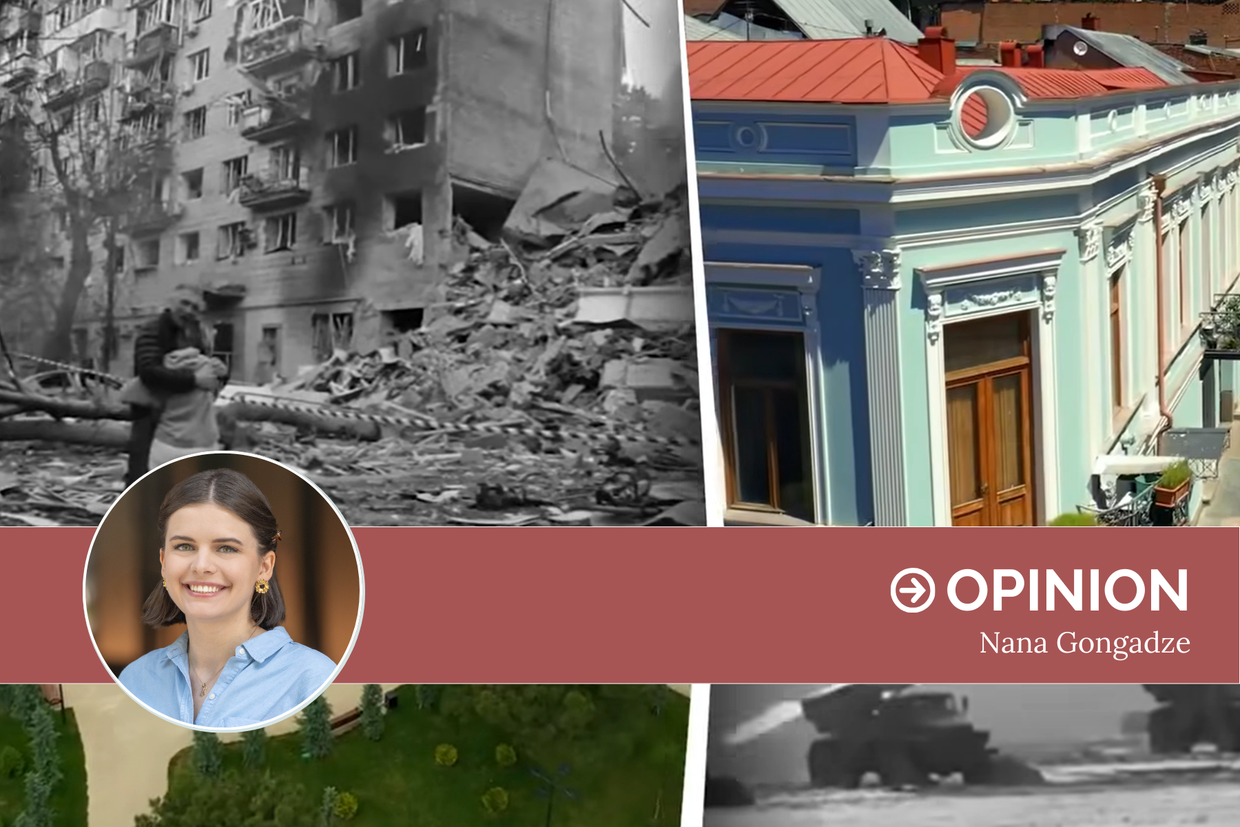
The genocide in Gaza has been unfolding before our eyes — it is not a battlefield; it is a concentration camp under permanent siege. There is no escape, no safe space, no food, no medicine. Hospitals, schools, and refugee camps have been bombed; doctors and journalists have been killed while working. Parents bury children in plastic bags; amputations are performed without anaesthesia. Famine is used as a weapon.
When I raise these facts, some Georgians ask, ‘Why should we care about Palestine that much?’. My answer is simple: because we, of all people, should know better. We have lived under occupation. We still carry the trauma of imperialism, war, displacement, and international indifference.
Since regaining independence, Georgia has sought to define itself by aligning with the West politically, culturally, and morally. For some, supporting Israel has become a way to assert their symbolic belonging to an imagined ‘Western civilisation’.
The fact that the international community strongly condemns Israel, its leaders are wanted by the International Criminal Court, and the country is charged with crimes amounting to genocide and apartheid does not seem to matter to these supporters. For these liberal Georgians, the West is not a value system but rather an exclusive club, and membership seems worth any moral compromise. This illustrates these Georgians’ deep anxiety and desperation to belong to the ‘civilised world’, even if it means justifying occupation, apartheid, and genocide. By siding with Israel in the name of ‘Western civilisation’, these people are, in fact, siding with its opposite — a complete betrayal of modern Western values such as the rule of law, human rights, and accountability. To defend Israel’s actions is to align not with the West’s ideals, but with their destruction.
Cultural narratives have also shaped this attitude. Georgian media often recycle Western talking points about ‘Israel’s right to defend itself’, rarely presenting Palestinian voices or historical context. It’s been shockingly dramatic to witness some of the most trustworthy local media outlets presenting Israel’s claims as facts, leaving them completely unchallenged.
This selectivity is also visible in our socio-political life. Since 28 November 2024, Georgians have filled Tbilisi’s central Rustaveli Avenue on a daily basis, demanding democracy and freedom from authoritarian rule. We proudly compared our protests to global movements for justice, yet remained largely indifferent to the protests in Tel Aviv, where thousands of Israelis took to the streets against their own government’s corruption, authoritarianism, and the ‘war in Gaza’.
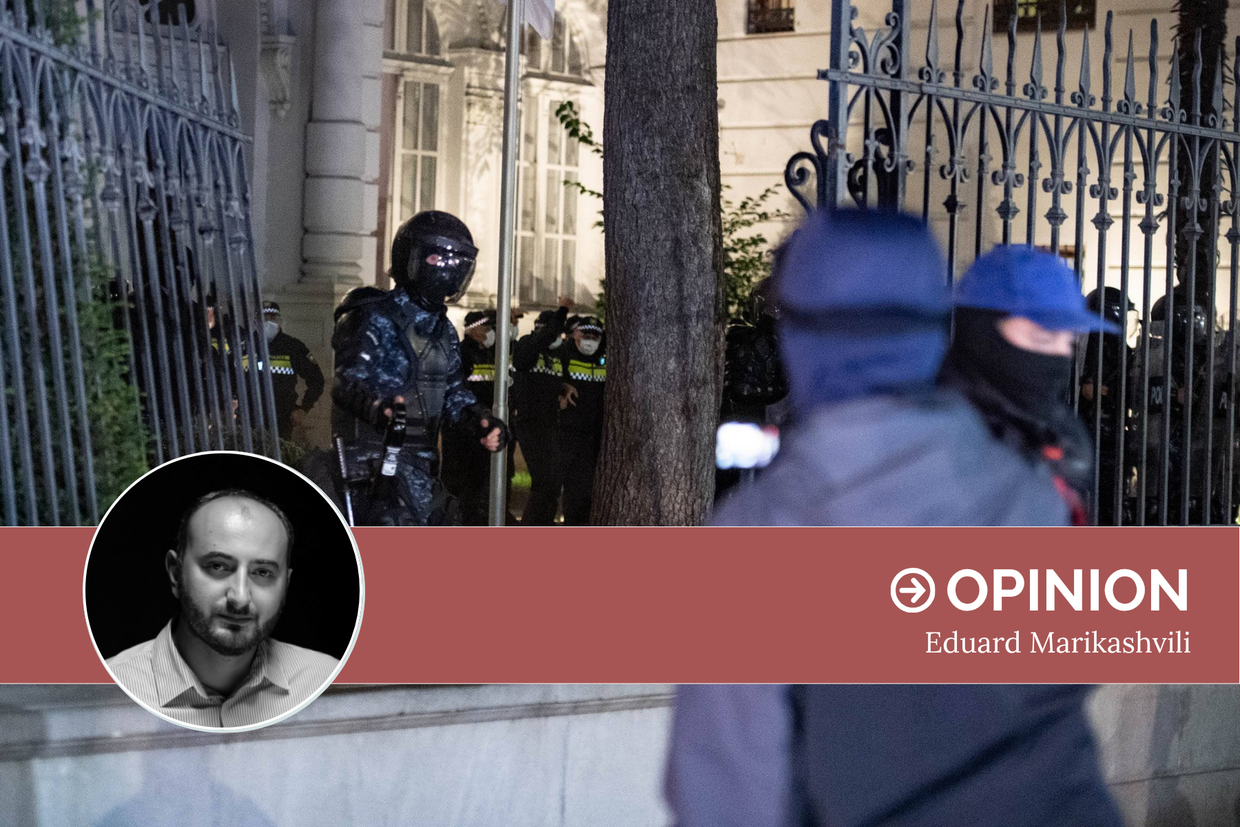
It is revealing that while Georgians identify with global struggles for democracy, we ignore those who fight for it within Israel. Furthermore, we completely ignore Palestinians’ right to self-determination and decades of liberation struggle.
In Israel, few have the moral courage to speak against the occupation and apartheid. Gideon Levy, a veteran journalist for Haaretz and the winner of the 2025 Athens Democracy Award, has spent decades documenting the cruelty of the system his country built.
‘I am Israeli. I was born in Israel. I care about Israel. I belong to Israel. I am attached to Israel. There is a regime that is one of the cruelest and most brutal tyrannies on earth today. Two people share one piece of land. One people have all the rights in the world, and other people have no rights whatsoever. It looks like apartheid; it talks like apartheid; it is apartheid’, Levy wrote. He also said that it isn’t a conflict but rather ‘a brutal Israeli occupation of Palestine that must come to its end one way or another’.
Levy’s perspective carries significant weight, particularly for Georgian readers who have endured similar struggles, reminding us of the importance of standing against oppression in all its forms. Many despise him, yet he continues to speak out, insisting that silence is complicity. His defiance embodies the moral courage to confront one’s own nation and reject loyalty when it requires blind obedience. For Georgians, it’s not even about our nation; it’s about mindlessly yet voluntarily obeying US positions.
In Georgia, we have our own example of moral courage: Mzia Amaghlobeli, a journalist and the winner of Sakharov Prize, whom the ruling party imprisoned for her critical voice and refusal to stay silent.
Levy and Amaghlobeli demonstrate that integrity and truth-telling require personal sacrifice but also bring dignity. Their examples remind us that true patriotism is guided by values, principles, and our shared humanity, rather than unquestioning loyalty.
This raises an important question: how can individuals who support Amaghlobeli also justify the actions criticised by Levy?
We cannot win the fight at home if we support our cause’s adversaries outside of it. It’s time to recognise the connection between systems of oppression and combat them.
The recent visit by Georgia’s Interior Minister Geka Geladze, accompanied by his far-right Israeli counterpart Itamar Ben-Gvir, to an Israeli prison where Palestinians are tortured is not a coincidence. Rather, it is a symbolic convergence of authoritarian regimes. It is a study visit on methods to suppress dissent, normalise violence, and criminalise resistance, where ‘security’ masks the systemic erosion of humanity.

Georgian liberals’ support for Israel’s crimes against humanity reflects deep fear of the Russian empire and an unexamined faith in the US-led order. Seeking to reduce Russian influence risks substituting it with obedience to the US, causing neglect of international law and justification of war crimes. I urge reflection on how this differs from the Georgian far-right’s support for Russia’s full-scale war in Ukraine: are both sides merely serving different powers? What are your real objectives for Georgia, and how do these choices serve its interests?
Advocacy for democracy requires consistently upholding international law, including urgently addressing Israel’s occupation of Palestine, apartheid, and genocide. Without such consistency, claims to defend democracy become mere imperial propaganda.



